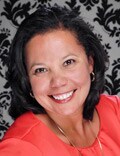
Maria Flores-Harris, BSN, MSN, DNP
The nursing profession faces a massive problem. For decades, nursing education has focused on teaching students all of the content they would need to know—disease categories, symptoms, treatments, etc—but hasn't connected this abstract knowledge to practical application. A lack of situational teaching in clinical settings has led to inadequate skills in critical thinking and decision-making on the part of novice new graduate nurses. This in turn has resulted in an epidemic of poor clinical judgment among novice nurses, preventing them from making the best decisions for their patients and incurring huge costs to the institutions where they work for longer orientation periods and malpractice lawsuits.
But here's the good news: The deficiencies of nursing education are about to change, as the traditional "nursing board exams" begin to test the critical thinking and judgment skills of nursing school graduates. The increased rigor of the Next Generation NCLEX®, specifically designed to assess clinical judgment of student nurses and scheduled to roll out in the next few years, may represent a significant step in evolving nursing education by ensuring that clinical judgment is properly evaluated.
Why the change in focus? The statistics related to clinical judgment among nurses are dreadful. According to the National Council of State Boards of Nursing, 65% of nursing errors can be attributed to poor clinical judgment. Even more shocking is the fact that just 20% of employers are satisfied with the clinical judgment skills of novice nurses. But this clinical judgment crisis, known widely to the nursing profession as "the education-practice gap," isn't new. In 2010, the renowned nursing theorist Patricia Benner coauthored a book which is nearly universally read in the profession: Educating Nurses: A Call for Radical Transformation. The biggest takeaway from this landmark publication was that new nurses were not performing well because they were not coming out of nursing school adequately prepared to apply their academic knowledge to real-world situations. Benner's call to integrate clinical judgment into the classroom put nursing education on notice and ushered the clinical judgment crisis into the nursing mainstream.
Since then, nursing schools have faced challenges with incorporating experiential training that tests clinical decision-making into their curricula. But the heavy clinical judgment focus of the Next Generation NCLEX, scheduled for rollout in 2022-2023, will force nursing schools to catch up with what Benner has been advocating for almost a decade. If the Next Generation NCLEX truly incorporates clinical judgment in a meaningful way, nursing schools will have no choice but to do the same, making clinical judgment in our classrooms and clinical experiences a central part of nursing education. After all, no institution wants to see a decline in board exam pass rates, and no student wants to attend an institution that will not help them pass this crucial test.
This couldn't come at a more critical time, as the population ages and many of our most experienced nurses leave the profession:
The US population will have ever more healthcare needs as the average age of Americans continues to rise. Simply put, an older population means nurses will have more to do, and they'll need the clinical judgment to do it right.
More Americans have healthcare today than just 10 years ago, largely because of the Affordable Care Act and policies associated with it, like Medicaid expansion at the state level. This means more people will be visiting doctors' offices and hospitals, making it important for as many nurses as possible to be practice-ready for this new influx of patients.
Since nursing errors have made their way into the mainstream media, regulatory agencies have stepped in with higher standards and regulations, including more distance education requirements for nursing schools and minimum staffing nurse requirements for hospitals.
While the Bureau of Labor Statistics projects that nursing will be one of the top growing professions from 2016 to 2026, it also expects that nearly 1 million nurses will retire by 2030, leaving a void in experience and nursing knowledge.
As a nurse with more than 25 years of experience, I hope to see an NCLEX-RN exam that confronts the education-practice gap head-on. This will be a welcome improvement in training a new generation of nurses who are better prepared for today's world. As students, teachers, and especially patients, we all stand to benefit from an exam that dives deeply into the problem that nursing has identified as our profession's crisis.
Follow Medscape on Facebook, Twitter, Instagram, and YouTube
Medscape Nurses © 2019 WebMD, LLC
Any views expressed above are the author's own and do not necessarily reflect the views of WebMD or Medscape.
Cite this: A Radical Change to Nursing Board Exams - Medscape - Aug 23, 2019.





Comments